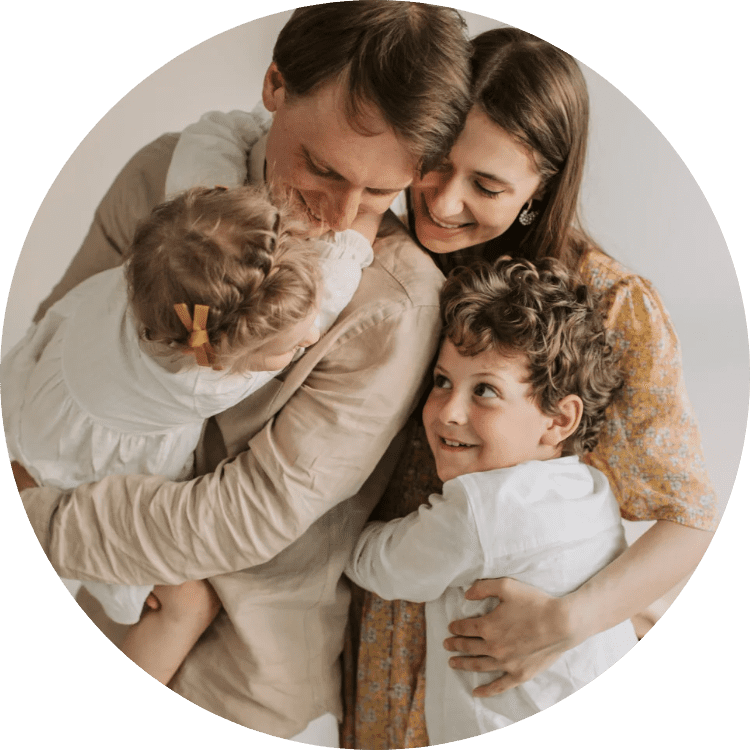Interventions for Developmental Difficulties
We all want to reach our full potential. iLs uses specially-treated music, movement and cognitive activities so we can get there.
Often, educational interventions are putting a roof on a weak foundation. By providing appropriate auditory, visual and vestibular stimulation, the iLs Focus system builds a solid foundation for the nervous system to develop. With a more developed nervous system, we’re better able to process information and academic skills.
iLs addresses the development of whole brain/body integration through a staged developmental approach, starting with the fundamentals of sensory integration and then extending through more complex cognitive functions, including language, self-expression, and social skills.
HOW IT WORKS

iLs is based on the fact that we can change our brain – we can essentially re-wire it through specific and repeated stimulation, a concept known as neuroplasticity. As in building strength and endurance with physical exercise, we are able to build neurological pathways and synaptic activity at any age.
-
Project CHILLD, MA
As a pediatric occupational therapist who has been practicing for over 25 years, I am continually amazed at the effectiveness of the Focus System equipment with children on the autistic spectrum, who have sensory integration disorders, language based and non-verbal learning disabilities as well as other developmental delays. This equipment facilitates growth and development in the areas of motor skills, language/communication and social skills at a greater rate than any modality I have used. It is also a pleasure being associated with the Center for Inner Change, Unyte’s “sister company”, and the Minsons, who offer a wealth of knowledge and experience with care and integrity. I would recommend the Focus System training and equipment to any practitioner who is interested in developing their practice with this exciting, state-of-the-art technology.
-
I did the Focus System with my son this last year through our school. He has improved in motor, writing, sensory integration, fine motor skills, speech delay and self-esteem. He still has some attention issues but we’re so glad we did it. Great program!
-
Parent
"M" has been in speech therapy and occupational therapy since he was 20 months old, but at two years old, he had a vocabulary of approximately 15 simple words. When he was 2.5 years old, we introduced the Focus System program to his therapy repertoire and immediately saw results. Within 20 hours of listening to the program, “M” said his first new word in 9 months. At 36 months, M had a breakthrough and began communicating with us. In conjunction with speech, occupational and ABA therapy, the Focus System has been an instrumental alternative therapy in my son’s healing and success.
THE BENEFIT
iLs has a global effect on the brain and central nervous system. As a result, it is successfully integrated into a wide variety of programs addressing the following developmental difficulties:
- Sensory processing
- Fine motor skills
- Coordination and balance
- Emotional regulation
- Language and auditory processing
SELECTED CASE STUDIES
FINE MOTOR DEVELOPMENTAL DELAY
Summary:Grayson was easily frustrated. He gave up on a task before even trying it. After using iLs, Grayson’s behavior and his ability to regulate his emotions significantly improved. With consistent listening, his writing evolved to include correct grammar and punctuation.
GLOBAL DELAYS IN SENSORY REGULATION, SENSORY-MOTOR SKILLS AND SPEECH
This case study focused predominantly on pre/post SSP QEEG results. The data indicates that the SSP stimulated change in the firing patterns of the brain toward more typical patterns as compared to a normative database. The sites measuring the most change included occipital with eyes closed; frontal and temporal with eyes open readings.
DEVELOPMENTAL DELAYS, AUDITORY PROCESSING WEAKNESSES & PRAGMATIC LANGUAGE PROBLEMS
Matthew made significant gains in all areas as evidenced by standardized testing, parental report, and successful completion of a Pre-K4 academic program. Teacher and parental reports indicated social skills are age-appropriate with peers. He functioned in the academic setting in areas of literacy and cognitive-linguistics without difficulty. Auditory processing skills were also within functional limits within the classroom setting.
SENSORY PROCESSING, SPEECH AND LANGUAGE DELAYS
E is more confident socially and is more verbally outgoing with adequate voice volume. She now likes to tell stories of events and she asks “why” and other “wh-” questions. She has been able to make new friends at school and appears happy now instead of having a flat affect.




 © 2025 Unyte Health US Inc.
© 2025 Unyte Health US Inc.